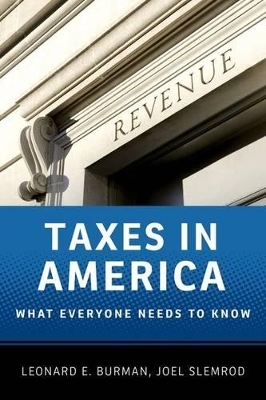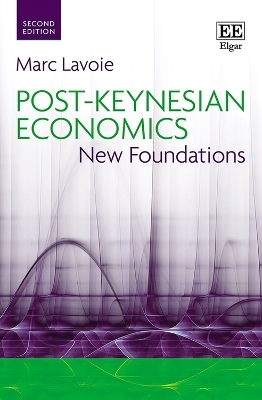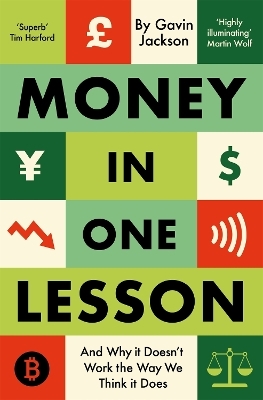
Taxes in America
Oxford University Press Inc (Verlag)
978-0-19-989027-9 (ISBN)
- Titel ist leider vergriffen;
keine Neuauflage - Artikel merken
Despite their passion and fury, contemporary Americans are remarkably clueless about how their tax system works. But with heated debates over taxation now roiling Congress and the nation, an understanding of our tax system is of vital importance. Taxes in America, by preeminent tax scholars Leonard E. Burman and Joel Slemrod, offers a clear, concise explanation of how our tax system works, how it affects people and businesses, and how it might be improved.
Accessibly written and organized in a clear, question-and-answer format, the book describes the intricacies of the modern tax system in an easy-to-grasp manner. Burman and Slemrod begin with the basic definitions of taxes and then delve into more complicated and indeed contentious concerns. They address such
questions as how to recognize Fool's Gold tax reform plans. How much more tax could the IRS collect with better enforcement? How do tax burdens vary around the world? Why do corporations pay so little tax, even though they earn trillions of dollars every year? And what kind of tax system is most conducive to economic growth?
Leonard E. Burman is Professor of Practice, Public Administration and Economics at Maxwell School of Syracuse University. Joel Slemrod is Professor of Economics in the Department of Economics and the Paul W. McCracken Collegiate Professor of Business Economics and Public Policy in the Stephen M. Ross School of Business, at the University of Michigan.
I. How are we taxed? ; 1. The view from 35,000 feet ; a. Why is everyone always so worked up about taxation? ; b. What is a tax? ; c. What are the major kinds of taxes? ; d. How are taxes like ducks? ; e. Are there "hidden" taxes? ; f. Are there ways to raise revenue other than taxes? ; g. How can regulations be like taxes? ; h. How have taxes changed over time? ; i. How do they vary across states? ; j. How do tax burdens vary around the world? ; k. How does the composition of tax change between fed, state, and local? ; l. Federal taxes in the US have been at about 18 percent of GDP for 50 years. Does that mean that this is the natural rate of taxation? ; m. Why is the long-term fiscal outlook so dire? ; 2. PERSONAL INCOME TAXES ; a. What's the difference between a personal tax and a business tax? ; i. Why do economists say that it doesn't matter who actually pays a tax? ; ii. Aren't there cases in practice where it does matter who writes the check? ; b. What is the personal income tax? ; i. What's the difference between a credit, deduction, and exemption? ; ii. What's a refundable tax credit? ; 1. What are the biggest refundable credits? ; iii. Is it true that most people don't pay income taxes? ; 1. Who are they? Why does it happen? ; 2. Is that bad for democracy? ; c. Do we tax capital income as much as labor income? ; i. What's the effect of tax breaks for pensions and retirement accounts? ; ii. How do we tax capital gains and dividends? Why do we do it that way? ; iii. Would a Scandinavian style dual income tax make more sense? ; iv. Are there other better options to lessen the tax burden on capital? ; d. What is "economic income" Why don't we tax that? ; i. You want to tax my imputed rent????? ; e. What is the AMT? ; i. Where the heck did it come from and why is it so hard to get rid of? ; f. Does Uncle Sam really want you to live in sin? ; g. How does inflation affect the income tax? ; h. What are payroll taxes, and how are they different from income taxes? ; 3. BUSINESS INCOME TAXES ; a. How do we tax corporations' income? ; b. Why tax corporations? ; c. Corporations earn trillions of dollars every year. Why do they pay so little tax? ; i. Who pays the corporate income tax? ; ii. Why is it hard to tell who ultimately bears the burden of the corporate income tax? ; d. Why do economist say that we "double tax" corporation income? ; i. What are the impacts of double-taxing corporate income? ; ii. What would happen if we just eliminated the corporate income tax? ; e. How can some companies get away with paying no income tax despite billions in profits? ; i. Why is it troublesome that some companies view their tax departments as profit centers? ; f. What is depreciation? ; i. Why not let businesses write off their investments right away? ; ii. What is "bonus depreciation?" ; iii. What are investment tax credits? ; g. Are there implicit spending programs run through the corporate income tax too? ; i. Why do we have ethanol tax subsidies, oil and gas special tax breaks, etc.? ; h. What are tax havens? ; i. What is a foreign tax credit? Why are they allowed? ; i. Why do we try to tax corporations on their worldwide income? Why not follow the practice in most of Europe and simply exempt foreign income from tax? ; ii. What is transfer pricing? Why is it important to multinationals (and taxpayers)? ; iii. What is formulary apportionment? Would that be a better option? ; j. What are the others ways business income is taxed? ; i. What is an S-corporation, LLC, etc? ; ii. How are partnerships and sole proprietorships taxed? ; 4. TAXING SPENDING ; a. What is a consumption tax? ; b. What is a retail sales tax? ; c. What is a luxury tax? ; d. What is an excise tax? ; i. What is a sin tax? ; e. What is a VAT? ; i. Why doesn't the US have one? ; ii. Would it be more complex in the US because of state sales taxes? ; iii. Does a VAT promote exports? ; iv. Is it self-enforcing? ; f. What is the flat tax? ; i. Wouldn't a flat tax be super simple and fair? ; ii. Is the flat tax advocates call for in the US the same as has been introduced around the world? ; g. What is the X-tax? ; h. Do consumption taxes disproportionately burden the elderly, or the poor? ; i. What can be done about that? ; 5. OTHER KINDS OF TAXES ; a. What is the difference between an estate and an inheritance tax? ; b. What are wealth taxes? ; c. What is the property tax? ; d. What is a gross receipts tax? ; e. What is a lump-sum tax? ; f. Why do economists like the idea of a poll tax or a tax on ability? ; i. Does this explain why people don't like economists? ; II. The costs and benefits of taxation ; 6. TAXES AND THE ECONOMY ; a. How do taxes affect the economy? ; b. Why do economists think that most taxes cost much more than their sticker price? ; c. Do some taxes help the economy? ; i. Some discussion of carbon taxes, cap and trade, and the relative advantages of each. ; d. Is it ever a good idea to run deficits? ; e. What are built-in stabilizers? ; f. Which is a better economic stimulus during an economic downturn, tax cuts or spending? ; g. What kind of tax cuts are the best stimulus? ; h. When interest rates are low, why not run giant deficits? ; i. If people care about their children, won't they just save more to make up for any deficits? I.e., do deficits matter at all? ; j. What kind of tax system is most conducive to economic growth? ; k. Is there a trade-off between economic growth and other objectives, like fairness? ; l. Why do smart, serious people disagree about optimal tax policy? ; m. How do taxes affect international competitiveness (and what does that mean)? ; i. Are some taxes "job killers," and others "job creators"? ; ii. Do taxes affect where companies locate their headquarters? ; iii. Do they affect the balance of trade? ; n. What is "trickle-down" economics? ; o. What is the Laffer curve? Can tax cuts pay for themselves? ; p. How do taxes affect working and saving? ; q. How do they affect entrepreneurship? ; r. How do they affect research and innovation? ; s. Does it matter if our tax rates are higher than other countries'? ; 7. THE HIDDEN WELFARE STATE ; a. Are a trillion dollars in middle class entitlement programs really hidden in the tax code? ; b. How should we decide whether to run a subsidy through the tax system? How do we do it in practice? ; c. Is the budget process biased in favor of tax expenditures compared with direct spending? ; d. Does the income tax subsidize housing? ; e. Does the income tax subsidize health spending? ; f. Why not subsidize everything? ; g. Isn't it a good idea to reward people (and businesses) for good behavior? ; h. Are there too many tax expenditures? ; 8. THE BURDEN OF TAXATION ; a. What makes a tax system fair? ; b. Why is the there often a trade-off between fairness and efficiency? ; c. What is the burden of taxation? Why is it hard to measure? ; d. What is the burden of deficits? ; e. How is the tax burden distributed? ; f. Is a progressive tax system class warfare? ; 9. TAX ADMINSTRATION AND ENFORCEMENT ; a. How does tax remittance and collection work? ; b. How much does it cost the IRS to run the US tax system? ; c. Why does the IRS like e-filing? ; d. What is tax withholding? Can it be extended to other forms of income? ; e. What is information reporting? ; f. Why do people cheat on their taxes? Why do they comply? ; g. How much cheating is there? ; h. Why are some taxes easier to evade than others? ; i. Is the income tax constitutional? ; j. What's the DIF? (Who gets audited?) ; k. How much more tax could the IRS collect with better enforcement? ; l. Why not audit everyone? ; m. Would a VAT be self-enforcing? ; n. Are refundable tax credits especially prone to tax evasion? ; m. What are tax shelters? ; n. Should I get a tax refund? ; o. Do most people get tax refunds? ; p. How many people use tax preparers? ; q. Why is the tax system so complex? ; i. How should tax complexity be measured? ; ii. How high are the costs of compliance? ; iii. Who benefits from tax complexity? ; iv. Do fewer tax brackets promote simplicity? ; v. What are phase-outs and phase-ins? ; vi. Why is there a trade-off between simplicity and other goals? ; r. What are the consequences of the Internet for the tax system? ; a. Should states be able to tax internet and mail-order sales from other states? ; s. If almost everyone uses tax software or paid preparers, why should we care about complexity? ; III. A tour of the sausage factory ; 10. TAX POLITICS ; a. What does the public know about taxes? ; b. What does the public think about taxes? ; c. How does do new taxes get enacted? ; d. How does the tax sausage get made? (House and Senate rules) ; e. What is the "two Santa Claus" theory? ; f. What is the "starve the beast" strategy? ; i. Is there evidence that it has worked? ; g. Is the system biased in favor of tax expenditures? ; h. What is dynamic scoring? ; i. Raise taxes, or cut spending? ; 11. TAX RHETORIC ; a. How to recognize Fool's Gold tax reform plans? ; i. Fairtax ; ii. Flat tax ; iii. Ryan's optional alternative tax ; iv. Financial transaction tax (securities transfer tax) ; b. What are would-be tax reformers favorite cliches (and do they help advance the goal)? ; i. "level playing field" ; ii. "neutral" ; iii. "broad-based, low-rate" ; iv. "competitive" ; v. "job creator" ; vi. "pro-growth" ; vii. "simpler" ; 12. TAX REFORM ; a. Is the broadest base always the best base? ; b. Which level of government should levy, and collect, taxes? ; c. How should federal and state taxes be coordinated? ; d. Does the framing of taxes affect behavior? ; e. What is a revenue-neutral tax change? ; f. Should tax reform and deficit reduction be separated? ; g. Could most taxpayers be spared any filing requirement (as in the UK)? ; h. Could the IRS fill out our tax returns for us? ; i. Would simplifying tax compliance be unfair to H&R Block and Intuit? ; i. The bizarre story of California's experiment with pre-filled returns. ; j. Are there some sensible tax reform ideas?
| Erscheint lt. Verlag | 15.4.2013 |
|---|---|
| Reihe/Serie | What Everyone Needs To Know® |
| Zusatzinfo | 25 b/w line |
| Verlagsort | New York |
| Sprache | englisch |
| Maße | 147 x 220 mm |
| Gewicht | 472 g |
| Themenwelt | Wirtschaft ► Volkswirtschaftslehre ► Finanzwissenschaft |
| Wirtschaft ► Volkswirtschaftslehre ► Wirtschaftspolitik | |
| ISBN-10 | 0-19-989027-7 / 0199890277 |
| ISBN-13 | 978-0-19-989027-9 / 9780199890279 |
| Zustand | Neuware |
| Haben Sie eine Frage zum Produkt? |
aus dem Bereich


